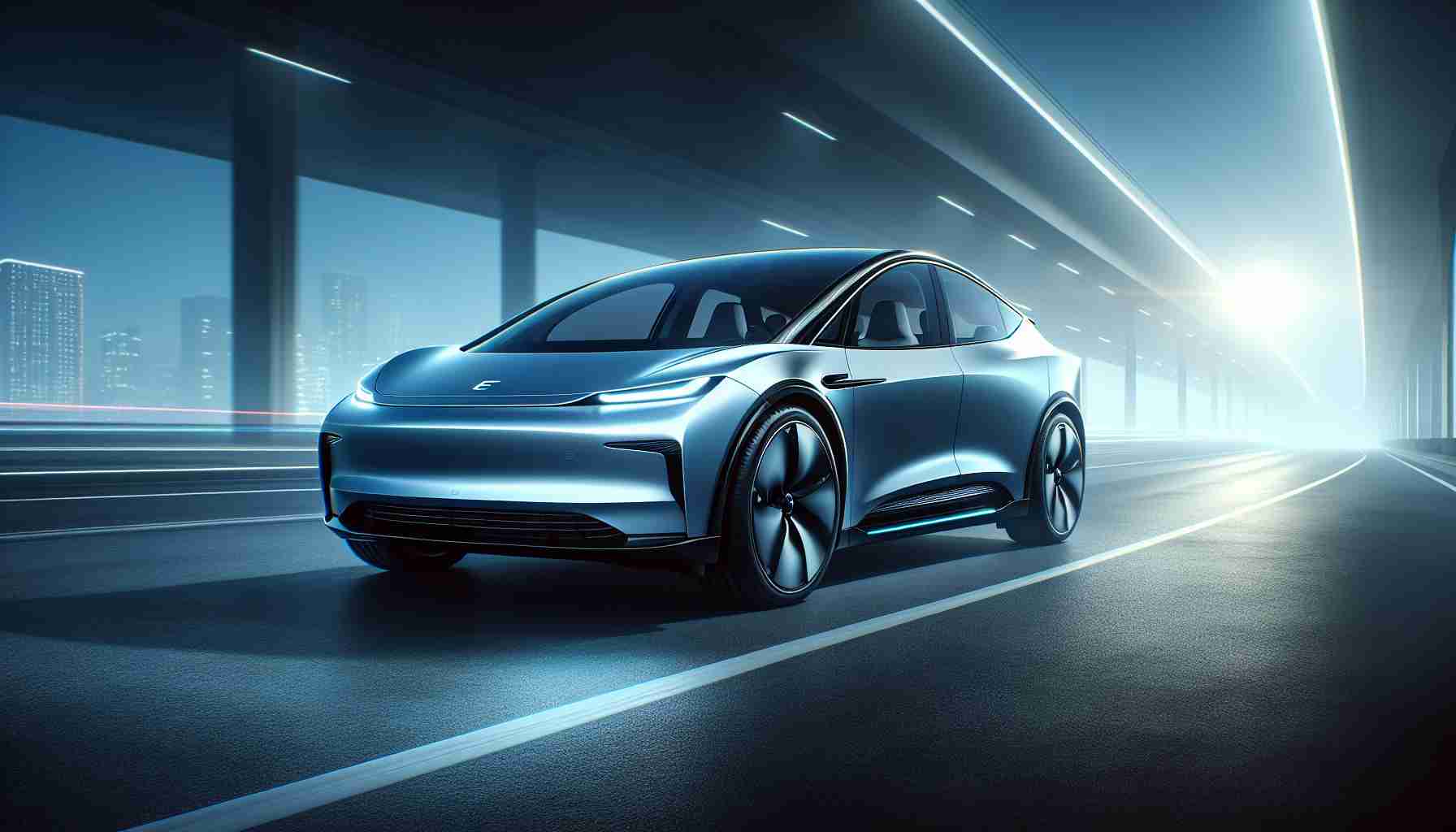Toyota is on the brink of an electric vehicle revolution! The company has announced significant advancements in battery technology that could exceed Tesla’s offerings, targeting both longer ranges and quicker charging times.
After a conservative approach to fully electric vehicles, Toyota is shifting gears by enhancing its lithium-ion batteries. Their upcoming Performance lithium-ion batteries promise a remarkable 491-mile range, while future High-Performance versions aim for an impressive 621 miles on a single charge. Notably, these new batteries will also support fast charging from 10% to 80% in just about 20 minutes.
In what is being hailed as a breakthrough, Toyota is also venturing into solid-state battery technology, boasting potential advantages over conventional batteries. The first iterations of these batteries could enable a driving range of up to 621 miles with charging capabilities in under 10 minutes—a major leap from the capabilities of the Tesla Model Y.
To harness this technology, Toyota has teamed with Idemitsu Kosan, focusing on developing advanced sulfide solid electrolytes. This collaboration, spanning over a decade, aims to establish mass production facilities that will tackle the persistent challenges of solid-state batteries, such as durability and manufacturing complexity.
With more than 8,000 patents in solid-state technology, Toyota is positioning itself as a leader in the market. If successful, these innovations could upend the automotive landscape, intensifying competition for industry giants like Tesla and various Chinese manufacturers. The future of electric vehicles is indeed looking electric!
Toyota’s Innovative Leap: Transforming the Future of Electric Vehicles
Electric vehicles (EVs) have become a staple in discussions surrounding sustainable transportation, and Toyota is emerging as a significant contender in this arena. With recent announcements highlighting groundbreaking advancements in battery technology, the automotive giant is poised to challenge established players like Tesla by redefining the landscape of electric mobility.
Advancements in Lithium-Ion Battery Technology
Toyota is enhancing its existing lithium-ion batteries with impressive specifications designed to meet consumer demands for range and efficiency. The upcoming Performance lithium-ion batteries are set to achieve a staggering 491-mile range, paving the way for longer journeys without the constant worry of recharging. Furthermore, the anticipated High-Performance iterations are rumored to push this envelope even further, aiming for an extraordinary 621 miles on a single charge.
In addition to range improvements, these batteries promise remarkably quick charging capabilities, able to charge from 10% to 80% in just about 20 minutes. This advancement positions Toyota to compete aggressively on charging speed, which has been a critical factor for many EV buyers.
The Shift to Solid-State Battery Technology
One of the most exciting prospects from Toyota is its investment in solid-state battery technology. These batteries potentially offer significant benefits over traditional lithium-ion batteries, including improved energy density and safety. The initial models of these solid-state batteries could allow for a driving range of up to 621 miles and have charging times that could drop below 10 minutes—a substantial improvement when compared to Tesla’s offerings.
Collaborating with Idemitsu Kosan, Toyota aims to develop advanced sulfide solid electrolytes, marking a decisive step in its decade-long effort to create reliable and efficient solid-state batteries. This partnership signifies Toyota’s commitment to addressing the hurdles present in the solid-state battery industry, such as durability and the complexities of mass production.
Patent Portfolio and Market Impact
With a formidable 8,000 patents specifically in solid-state technology, Toyota is strategically positioning itself as an innovator within the EV market. Should these developments come to fruition, they could disrupt the current dynamics within the automotive industry, increasing competition not just with Tesla, but also with numerous Chinese manufacturers that have made significant strides in electric mobility.
Pros and Cons of Toyota’s Electrification Strategy
Pros
– Extended Range: Significant improvements in driving range could meet consumer needs for longer travel.
– Rapid Charging: Fast charging capabilities might alleviate range anxiety for many drivers.
– Innovation Leadership: A strong patent portfolio positions Toyota as a leader in future innovations.
Cons
– Development Risks: New technologies may face development hurdles, including manufacturing and durability challenges.
– Market Entry Timing: If competitors advance their technologies faster, Toyota may struggle to keep pace.
– Investment Costs: Continued investment in R&D may impact short-term profitability as the company transitions to new technologies.
Insights and Predictions
As Toyota advances its electric vehicle technology, market analysts predict a significant transformation in consumer adoption rates for electric vehicles. The emphasis on solid-state batteries could inspire other manufacturers to accelerate their own research and development efforts, promoting innovation across the automotive sector.
The rise in electric vehicle demand coincides with increasing government regulations and consumer awareness regarding sustainability. Toyota’s innovations could not only enhance its competitive edge but also contribute positively to global carbon footprint reduction efforts.
Conclusion
With its commitment to revolutionizing battery technology and ambitious plans in the EV sector, Toyota is well on its way to becoming a formidable player in the electric vehicle market. The paradigm shift in their strategy reflects broader trends in the automotive industry, where sustainability and innovation are becoming essential. As Toyota rolls out these advancements, the future of electric vehicles indeed looks brighter than ever.
For further details on Toyota’s expanding role in the automotive landscape, visit Toyota’s official website.
